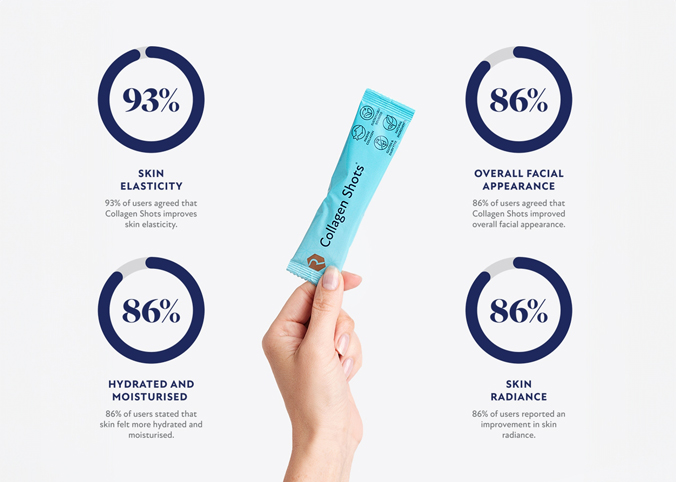What is the blood brain barrier?

The intricate network of blood vessels coursing through the body nourishes its organs, tissues, and cells. However, the central nervous system necessitates a specialised vascularisation that is characterised by a unique and tightly regulated construct, called the blood brain barrier. Maintaining, protecting and nourishing your blood brain barrier is critical to supporting a life of good health and longevity.
What is the Blood Brain Barrier?
The blood brain barrier is responsible for controlling the movement of ions, molecules and cells between the blood and the delicate neural tissue of the brain, playing a key role in maintaining the homeostasis of the central nervous system. The blood brain barrier ensures optimal neuronal function through the controlled delivery of vital oxygen and nutrients while simultaneously safeguarding the brain from potentially harmful invaders like toxins and pathogens. The selective permeability ensures that only essential substances reach the brain, protecting it from harmful invaders and also from fluctuations in the bloodstream.
Why is the Blood Brain Barrier Important?
If you were to think of the brain as if it were the body’s computer, then the blood brain barrier would be the brain’s protective firewall. The blood brain barrier works to prevent toxins, harmful chemicals and even some drugs from disrupting the delicate neurons of the brain; enabling the brain to maintain its delicate balance. It also guards against pathogens, protecting the brain from infections that could have more devastating consequences.
Can the Blood Brain Barrier be Damaged or Broken?
Unfortunately the blood brain barrier can be damaged and broken down. Trauma, infections, chronic conditions like high blood pressure and diabetes, and even certain medications can compromise the integrity of the blood brain barrier. This breakdown can have similar impacts to that of the breakdown of the cell's telomeres, a topic we’ve talked about at great length previously. The cascade of issues that can come from the breached integrity of the blood brain barrier can stretch from inflammation and cell death through to neurological diseases such as Alzheimer’s and Parkinson’s.
It is therefore integral to actively nourish your brain to maintain and protect your blood brain barrier, adjusting your lifestyle should any of the symptoms become apparent.
What are the Symptoms of a Damaged Blood Brain Barrier?
Symptoms can vary depending on the cause and severity of the damage, but some common signs of a damaged barrier can include:
● Regular and long-lasting headaches
● Chronic Fatigue
● Difficulty concentrating
● Memory problems (especially short term)
● Mood swings
● Seizures
It should be noted that these symptoms are not exclusive to a damaged blood brain barrier, so if you experience these symptoms you should seek the advice of your GP.
What Exactly is Blocked by the Blood Brain Barrier?
Many molecules are too large or charged to pass through the blood brain barrier’s tight interlocking endothelial cells and junctions. Some of the most commonly blocked molecule or chemical types are:
● Large proteins, such as insulin
● Antibiotics, such as Amoxicillin
● Toxins and pollutants
● Selected prescription drugs
But for as many molecule types that cannot pass through the blood brain barrier there are chemicals that can pass through, which you really don’t want.
What can pass through the Blood Brain Barrier?
As mentioned above, while the barrier protects the brain from many things, often water-soluble molecules can pass through the endothelial junctions. Some of these are:
● Oxygen
● Glucose
● Water
● Amino Acids
● Naturally produced body hormones
● Selected Nootropics and Adaptogens
These vital substances navigate through the blood brain barrier through specialised transporters or through specific lipids.
Additionally, molecules such as;
● Nicotine
● Alcohol
● Caffeine
● Anesthetics
● Sedative Hypnotic Drugs such as Benzodiazepines (or ‘Benzo’s’)
While these molecules are not great for the brain, they can cause damage when consumption/usage is not moderated or minimised.
How can I strengthen my Blood Brain Barrier?
While there is a great deal of research ongoing into whether and how the blood brain barrier can be strengthened, one thing is for sure, lifestyle factors can be influential on how much damage is done to the barrier and can be influential to brain health.
If you are keen to promote a healthy blood brain barrier, you should look to:
Maintain a Healthy Weight - Obesity and high blood pressure can weaken the blood brain barrier.
Eat Clean - Focusing your consumption on superfoods, fruits, vegetables, whole grains and lean protein are great for building a balanced diet.
Enhance Body Defence - By taking ingredients that will help to boost your body’s natural defences, such as Cellular Calm Complex, which is rich in nootropics, you’ll be serving to protect your brain. Other products that contain ingredients that can transfer the blood brain barrier are Regenerate, H3O Hydration and H3O Night Repair.
Sleep - Sleep deprivation can negatively impact the blood brain barrier.
Stress Management - Chronic stress can harm the brain and its protective barrier, so it is always important to find ways to relieve stress to avoid cases of burnout.
The Blood Brain Barrier is something that is being researched with great focus and funding at the moment, and over time, we have no doubts that more scientific detail will become available. However, maintaining a healthy lifestyle and helping this gatekeeper to the brain to continue to maintain our brain health is something you should be considering when thinking about your mental well-being.






